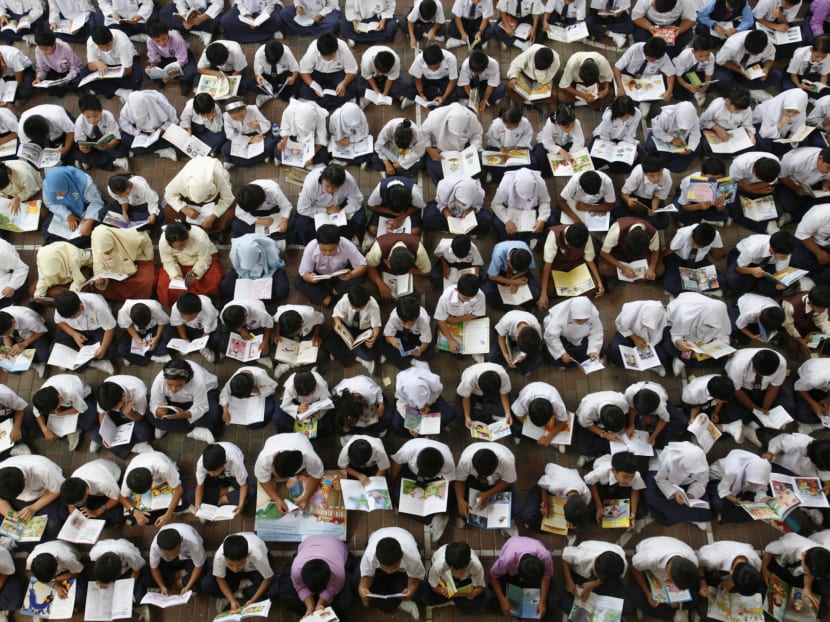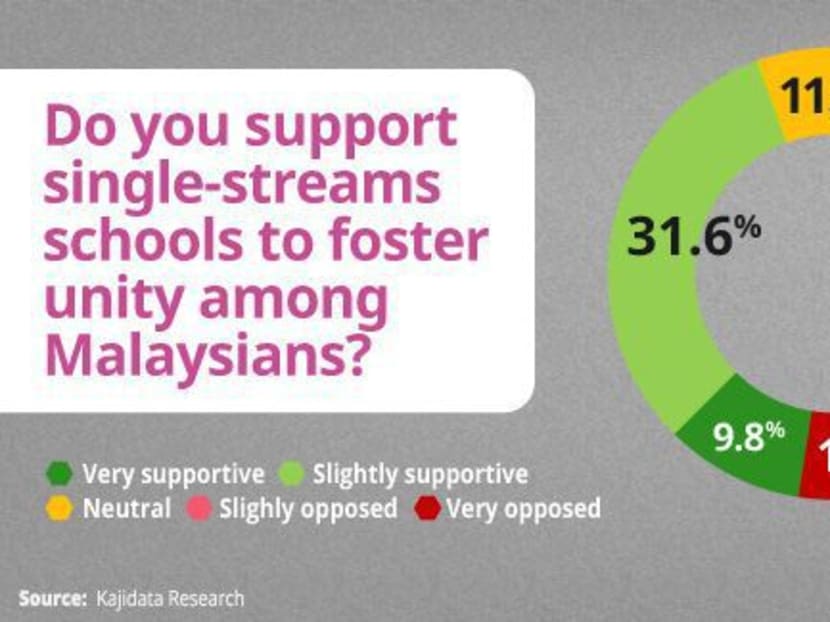Najib: Single-stream schools a political landmine
PUTRAJAYA — While it would be ideal for Malaysia to have only single-stream schools to unite its multiracial people, the idea is sensitive and akin to a “political landmine”, said Prime Minister Najib Razak this week.
PUTRAJAYA — While it would be ideal for Malaysia to have only single-stream schools to unite its multiracial people, the idea is sensitive and akin to a “political landmine”, said Prime Minister Najib Razak this week.
He was responding to suggestions for the government to embrace the concept of single-stream schools and do away with the existing national school system, providing a choice in the main language of instruction. Currently, the multi-stream system consists of national schools with Malay as the medium of instruction, and Chinese and Tamil vernacular schools.
“There are those who suggested that we begin from schools. This is a very sensitive matter, it’s a landmine, political landmine, because we have differing streams,” he said at the end of a candid National Transformation 2050 (TN50) dialogue session with civil servants on their aspirations for the future.
He said the government has received suggestions to improve the education system by having only one national school where the main medium of instruction is in Bahasa Malaysia, but with electives in Mandarin, Tamil, English and Arabic to broaden students’ proficiency in other tongues.
“In other words, if a student is (ethnically) Chinese, he goes to the school and he learns three languages. This must be compounded with a good-education quality, and his teachers, should not just be from one race, but multiracial,” said Mr Najib.
“So can we accept this model? Let us think through together.”
He said that while everyone wanted unity and believed it should be honed starting from school, no one was able to provide a pragmatic and workable solution.
Mr Najib had said repeatedly that the government would not enter the fray if the people are not ready to change the existing policy of giving “every Malaysian citizen, ethnic group and community the right to choose the type of education they want”, as he said in 2009. He also said in 2015 that abolishing vernacular schools and replacing them with a single stream was not the policy of the United Malays National Organisation (Umno)-led Barisan Nasional coalition.
The idea of a single stream, first mooted by Professor Emeritus Khoo Kay Kim in 2009 has been debated for years. Single-stream schools ― either in the Malay or English language ― are seen by their proponents as a way to integrate Malaysians, but the proposal faces opposition from proponents of vernacular schools, creating a divide in the community.
A recent survey of over 1,000 respondents showed that almost half opposed changing the current policy. Three out of four Malaysians, or 75.1 per cent, said they support the current system for the sake of unity, with the most ardent supporters coming from ethnic Chinese and the Sabah Bumiputera (81.5 per cent and 82.3 per cent respectively). Overall, 58.3 per cent of Malaysians polled were against the proposal for a single stream system, while 51. 2 per cent supported it.
A critic of the existing multi-stream is Johor ruler Sultan Ibrahim Iskandar, who said in November last year that racial unity had not been truly achieved in Malaysia, with one reason being the education system where there are too many streams, especially at primary-school level.
Earlier in the TN50 dialogue, an officer from the Education Ministry who only identified herself as Nadia had asked the government to form single-stream schools to better unite the different racial communities.
She said the single-stream schools could strengthen the proficiency of the students in their mother tongues and other languages by offering classes in English, Tamil and Mandarin.
“One way for us to inject unity is by having single-stream schools, whereby we make Bahasa Malaysia the main medium, and strengthen the English language, without side-lining Chinese and Tamil languages,” she said.
The TN50 initiative, Mr Najib’s brainchild, was launched on January 19 to map out Malaysia’s future for the next 30 years in its path to achieve developed nation status.
Other topics broached at the session include the effects of Goods and Services Tax (GST) on living costs and the need for more freedom of speech and expression.
MALAY MAIL ONLINE











